
The global digital marketplace industry reached $3.82 trillion in 2023. Successful platforms like Amazon and Uber lead the way. Many businesses still struggle to understand marketplace app development costs and underestimate the investment needed for success.
Our detailed guide will help you understand the complex world of marketplace app development costs in 2024. The analysis covers simple development expenses and advanced feature implementation costs. We have worked with app development companies and learned about mobile app development pricing in different regions and technology stacks. You will find answers about marketplace app development costs and ways to optimize your development budget in this piece.
The breakdown covers all cost components, from original planning to post-launch maintenance, that will help you make informed decisions for your marketplace project.
Understanding Marketplace Development Costs in 2024
The marketplace app development costs show substantial progress as we enter 2024. The e-commerce market is projected to reach $5.02 trillion by 2028 with a strong CAGR of 10.15%. These numbers directly affect development costs and complexity requirements.
Current market trends that affect development costs
Mobile e-commerce sales are expected to hit $2.2 trillion by the end of 2023. This mobile commerce surge creates a need for sophisticated marketplace applications. The rising demand affects development costs of all sizes.
Key cost components breakdown
Our analysis of marketplace projects reveals that development costs typically range from $40,000 to $300,000. The final cost depends on the project's complexity. Here's a detailed cost breakdown based on project scope:
- Simple Marketplace Apps: $40,000-$60,000 with 3-6 months development time
- Medium Complexity Apps: $60,000-$100,000 with 6-9 months timeline
- Complex Applications: $100,000-$300,000 with 9+ months development period
Design costs range between $7,000 to $20,000. The coding expenses can range from $30,000 to $100,000.
Regional price variations and outsourcing considerations
Development costs vary substantially across regions. Our research shows these hourly rates:
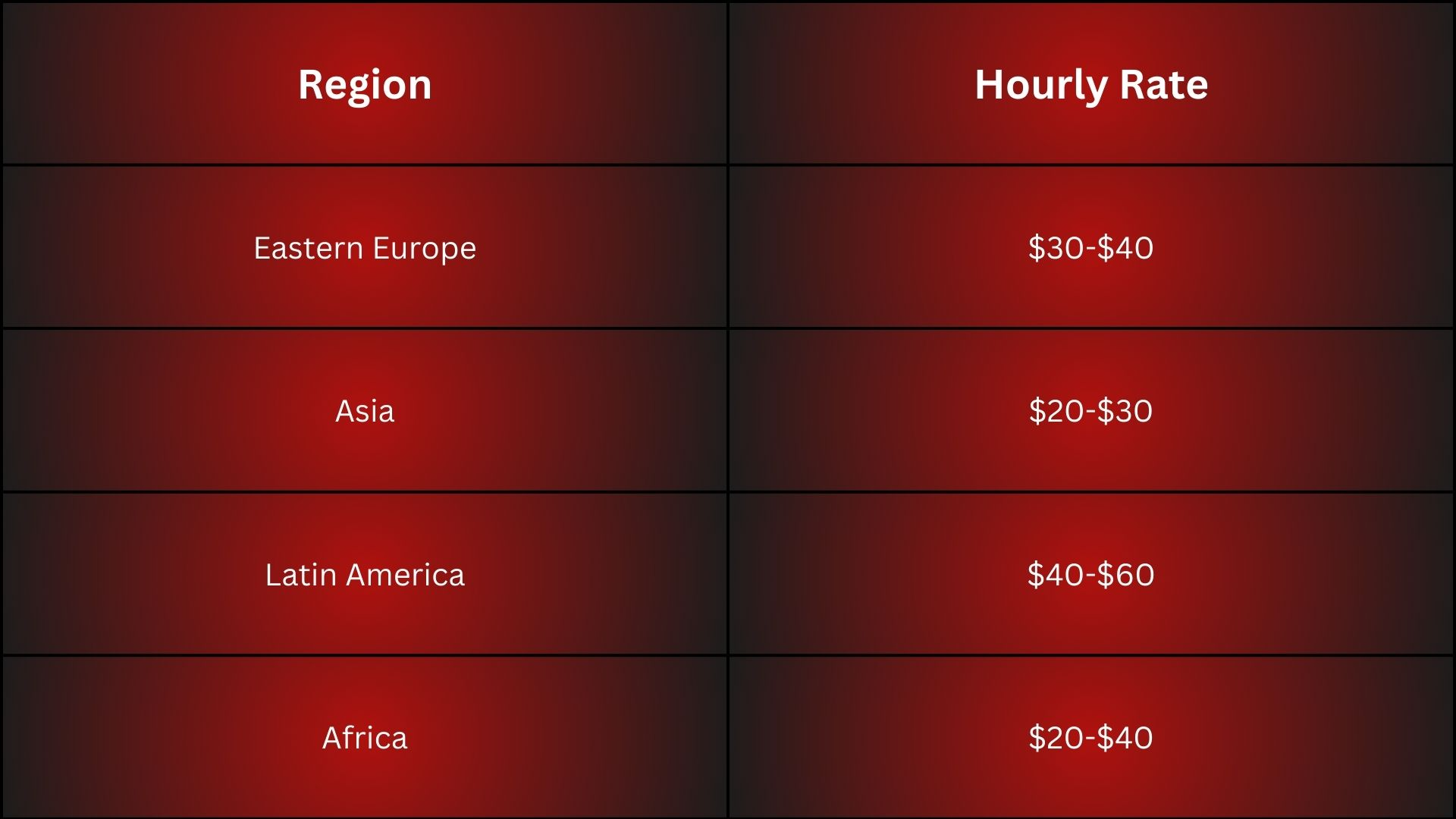
About 79% of businesses outsource mobile app development services. This helps reduce costs tied to hiring, office rent, hardware, and employee benefits. Companies should look beyond just costs when choosing an outsourcing partner. Technical expertise, communication capabilities, and time zone compatibility matter equally.
The technology stack choice plays a crucial role in determining the final cost. Off-the-shelf solutions like Ruby on Rails or Node.js might have higher upfront development costs. However, these solutions prove more expandable and economical long-term.
Read More: E-commerce App Development: How Much Will It Cost You? Find Out Now!
Core Development Cost Factors
Our marketplace application development experience shows that accurate budget planning depends on understanding the core cost factors. Let's explore the key elements that affect your development costs a lot.
Technology Stack Selection Impact on Pricing
The technology stack selection process needs both immediate development costs and long-term maintenance considerations. Your choice between native and hybrid development approaches will affect the overall budget by a lot.
- Native Development: Requires separate development for iOS and Android, increasing costs but offering better performance
- Cross-Platform Development: More economical solutions that reduce development time by 30-40% compared to native development
The tech stack you choose will affect your app's scalability, speed, and user involvement, which ends up changing the total marketplace app development cost.
Infrastructure and Hosting Requirements
Hosting and infrastructure costs range from $100 to $1,000 per month based on your platform's scale and traffic. Modern marketplaces need cloud service integration that has:
AWS services and DevOps tools cost approximately $200-250 monthly for standard marketplace operations. Your infrastructure costs will grow with your user base, so budget accordingly.
Development Team Composition and Rates
The team composition changes the overall development budget substantially. A typical marketplace app development team has:
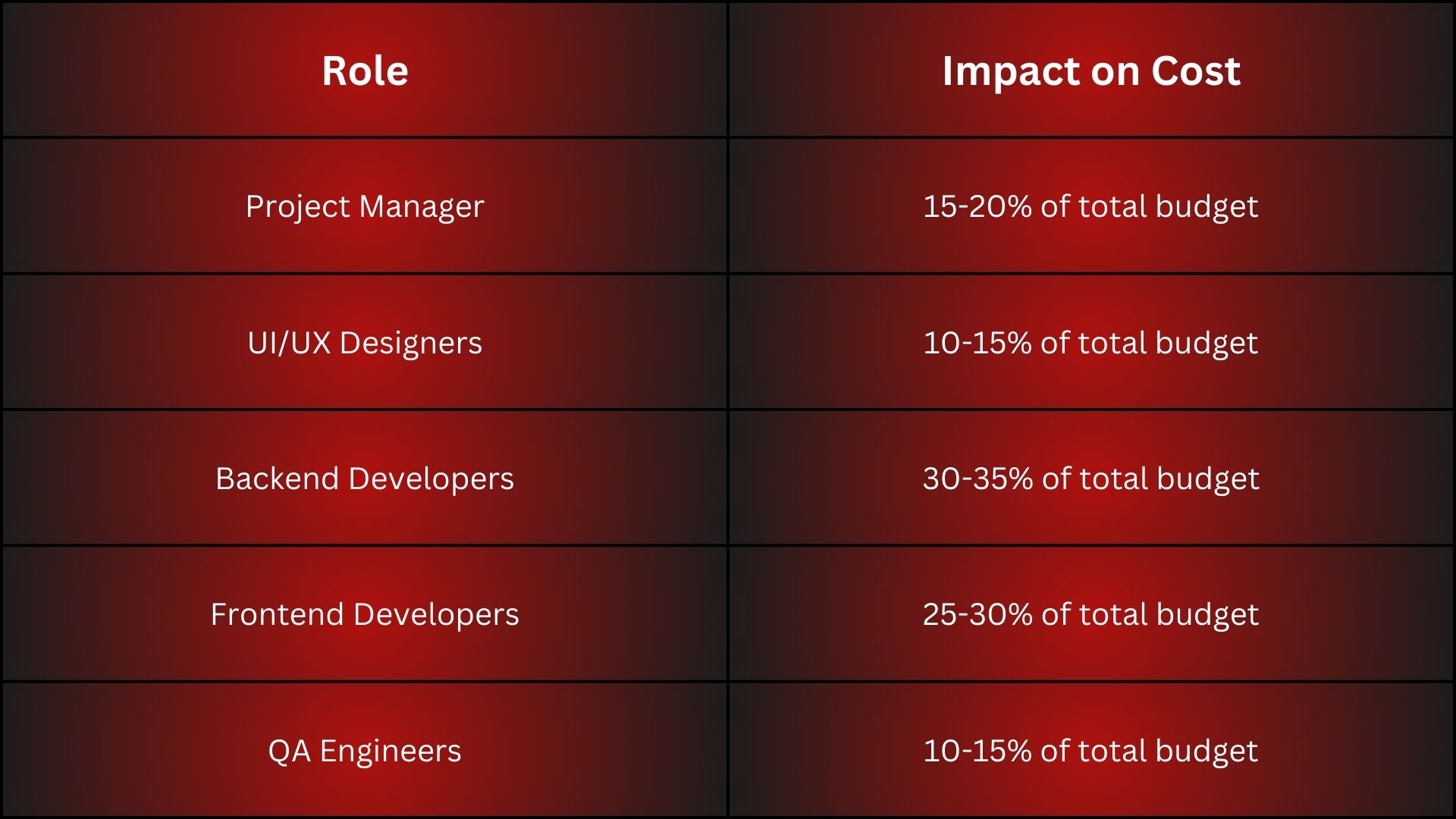
Developer rates change by region dramatically. Eastern European developers charge $50-80 per hour, while US-based developers typically charge $81-100 per hour. A dedicated team through outsourcing often provides economical solutions while maintaining high quality standards.
Your marketplace app's complexity determines the team size needed. To name just one example, complex marketplace applications need larger teams and more experienced developers. This might increase costs but will give a faster development cycle with better quality.
Essential Features and Their Costs
The specific features that affect marketplace app development costs deserve a closer look. Our analysis of many marketplace projects helps explain detailed pricing for both simple and advanced features.
Must-have marketplace features pricing
Simple marketplace features are the foundations of your platform's success. A basic marketplace app costs between $40,000 to $80,000. The simple features include:
- User Authentication and Profiles: $3,000-$8,000
- Product/Service Listings: $4,000-$7,000
- Shopping Cart and Payment Integration: $5,000-$8,000
- Search and Navigation: $4,000-$6,000
Advanced feature implementation costs
Advanced features boost user experience and increase development costs. Here's what you can expect to pay for advanced implementations:
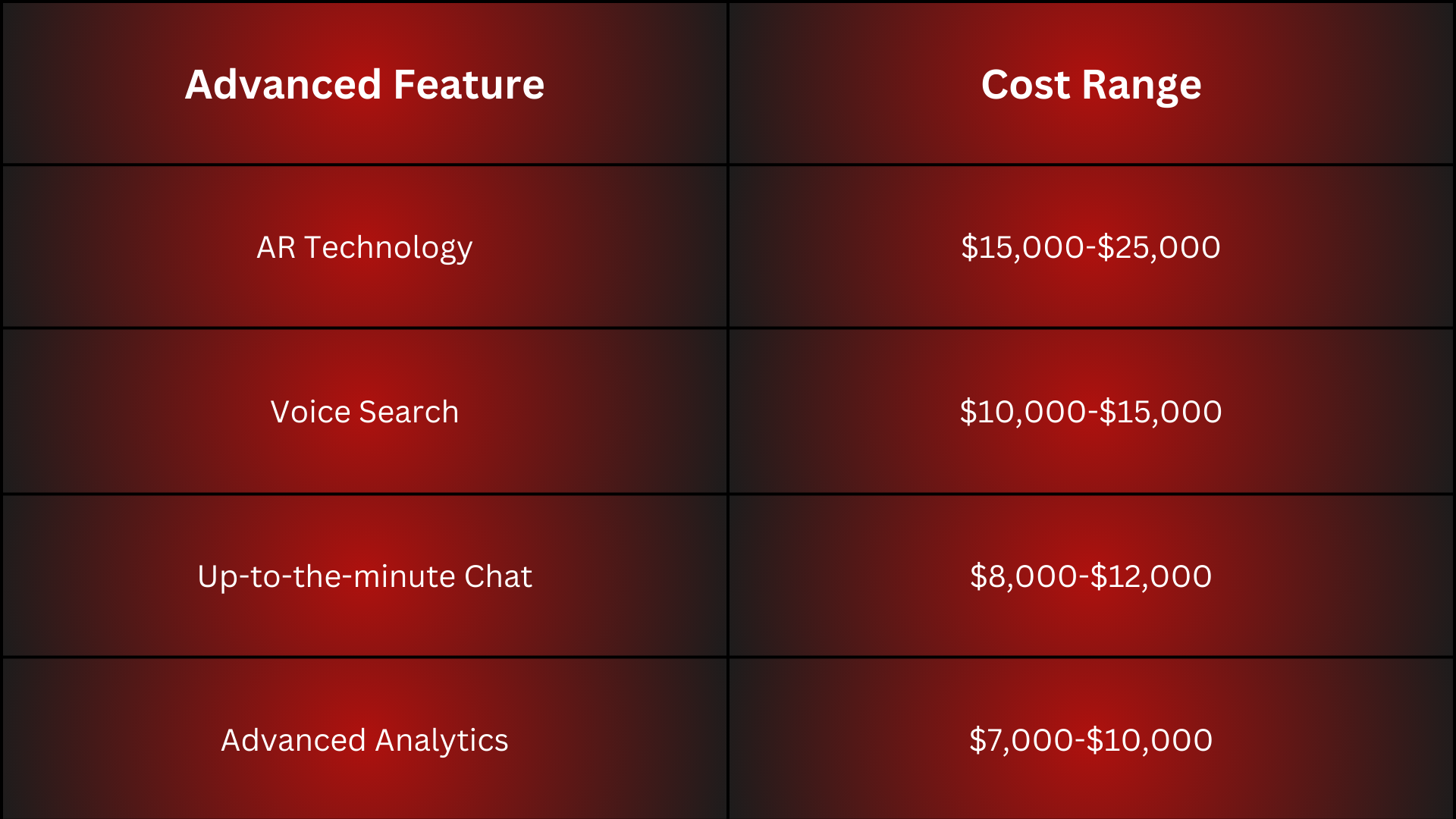
Integration costs for third-party services
Third-party integrations are vital for marketplace functionality. Standard integrations cost between $5,000 to $15,000, while custom integrations range from $20,000 to $100,000. Here's what you should think about for integrations:
- Payment Gateway Integration: Multiple payment options boost user experience
- Social Media Integration: Users need this for authentication and sharing
- Cloud Services: Support and maintenance costs run $100 to $5,000 monthly
Basic integrations cost $0.50 per 1,000 executions for data processing and connections. Each extra gigabyte of processed data adds $10 - something to remember as your platform grows.
Your platform's complexity and number of integrated services determine annual maintenance and support costs. These typically range from $100 to $5,000.
Modern Technology Integration Costs
Technology integration plays a vital role in determining marketplace app development costs. Our analysis of projects shows that advanced technologies substantially affect the overall budget.
AI and ML implementation expenses
Building marketplace applications has taught us that intelligent app development costs range between $40,000 to $300,000. The price depends on how complex the features are. Here's how the implementation costs break down:
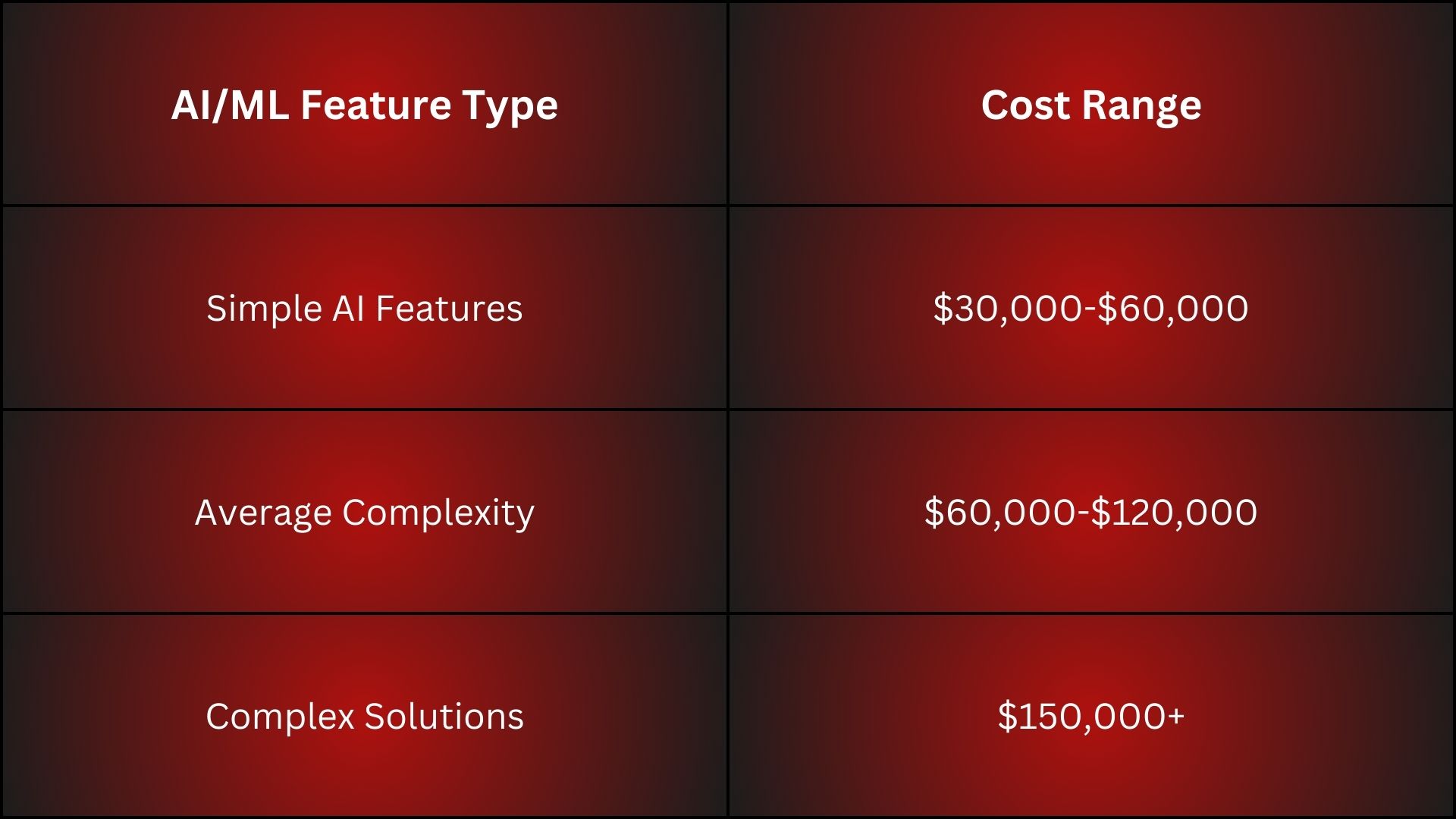
Data preparation and model training can add $10,000 to the original costs.
Blockchain integration pricing
Blockchain integration costs vary based on how complex the implementation is. Here are the main cost factors:
- Smart Contract Development: $32,000 base cost plus additional gas fees
- Platform Selection: Ethereum-based development has a minimum fee of 32,000 gas plus 200 gas/byte
- Deployment and Testing: Extra costs apply for cloud platforms and DevOps services
Cloud services and scalability costs
Cloud services are the foundations of modern marketplace applications. Our experience shows these typical cloud computing costs:
- Storage costs start at $0.02 per GB for the first 50 TB monthly
- Compute resources charged by hour or second
- Data transfer fees change with volume and provider
Smart cost management should utilize sustained use discounts. These can save you 20-30% on listed costs. Maintenance costs usually run 15% to 25% of the original development cost each year.
Our project experience shows cloud infrastructure costs change with traffic and users. A standard marketplace needs $200-$250 monthly for AWS services. We tell our clients to prepare for growth since these costs increase as the platform expands.
Also Read: Mobile Application Development Cost Breakdown in 2025
Maintenance and Operational Expenses
A marketplace app needs substantial investment beyond the original development costs. Learning about these ongoing expenses is vital to your marketplace platform's long-term success.
Ongoing maintenance requirements
Our experience shows maintenance costs usually range between $100,000 to $500,000 per year for a standard marketplace app. The first-year maintenance costs can get pricey, taking up 15-40% of the original development cost. Here's how the maintenance requirements breakdown:
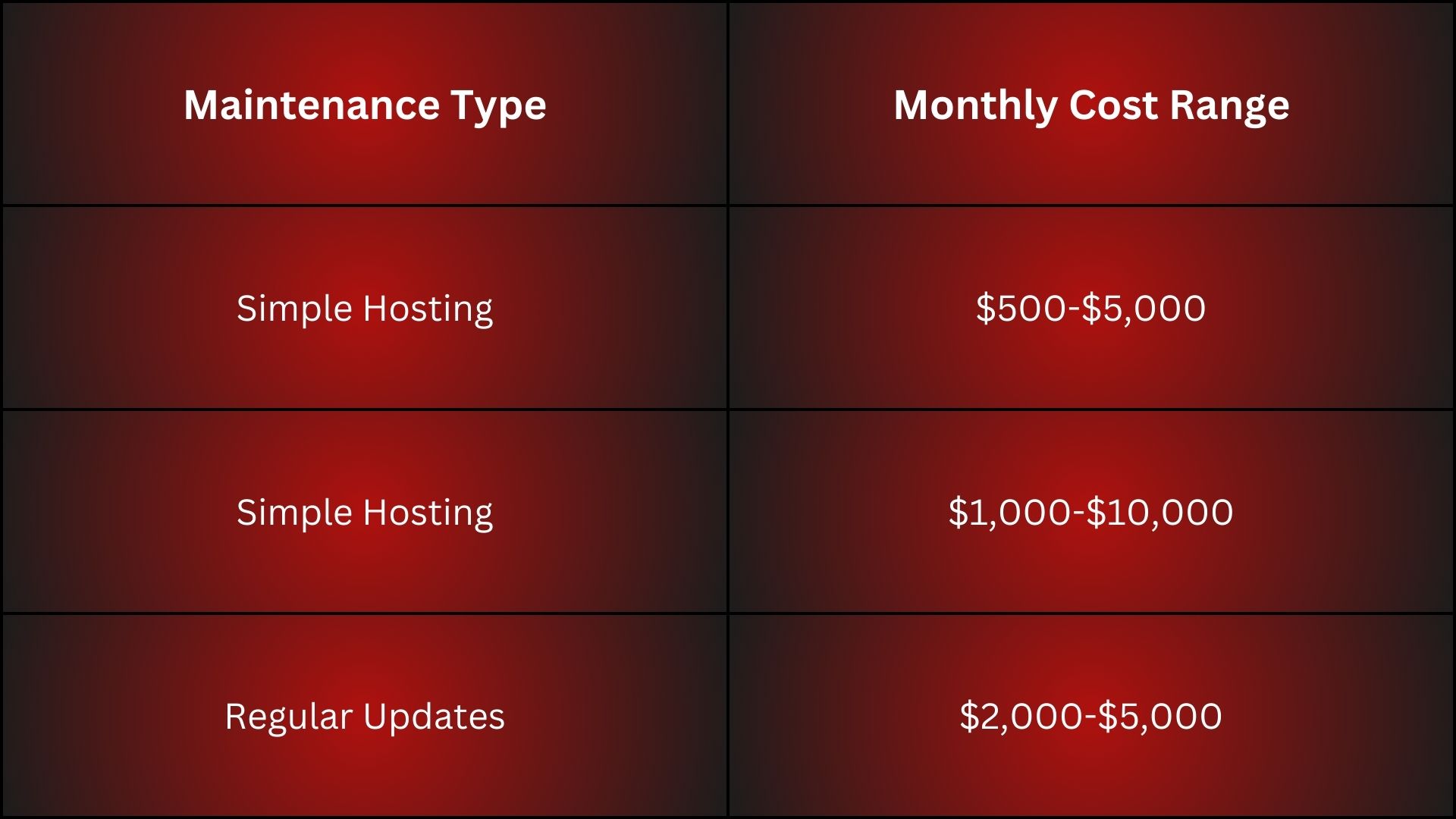
Security updates and compliance costs
Security breaches can devastate marketplace apps. The average cost reaches $4.45 million per incident. You should invest in these preventive measures:
- Cloud-based data storage and backup: $50-$500 monthly
- Enterprise-grade security solutions: $20-$100 monthly
- Security monitoring and incident response: $500-$5,000 monthly
Security audits and penetration testing cost between $5,000 to $50,000 yearly. This investment helps build user trust and ensures regulatory compliance.
Performance optimization expenses
User retention depends heavily on performance optimization. These costs typically include:
- Regular bug fixes and updates
- Performance monitoring tools
- Infrastructure scaling
AWS and DevOps services need about $200-$250 monthly to maintain peak performance. Preventive maintenance might need upfront investment but cuts long-term costs by spotting problems before they affect users.
Docker and Terraform integrations provide detailed maintenance coverage. These tools streamline operations and protect your marketplace from cyberattacks while keeping development costs in check.
Platform growth naturally leads to increased maintenance needs. Good performance optimization keeps users happy and prevents emergency repairs from getting expensive. Smart planning and DevOps practices help our clients reduce maintenance costs while keeping their platforms stable and secure.
Cost Optimization Strategies
Smart cost optimization strategies can cut your marketplace app development costs without affecting quality. We have helped clients streamline their development budgets through careful planning and execution.
MVP development approach
Our experience shows that starting with a Minimum Viable Product (MVP) helps manage marketplace app development costs effectively. The MVP development costs range between $40,000 to $60,000 and takes 3-6 months to complete. This approach works well because it:
- Lets you test and validate market fit quickly
- Cuts down original development costs
- Helps incorporate user feedback
- Reduces the risk of failure in the long run
MVP development has helped our clients gain customer insights with minimal investment. Startups find this approach useful to test their marketplace ideas before making big investments.
Phased implementation planning
A phased implementation strategy works best for complex marketplace projects. Based on what we've seen, this approach brings several benefits:
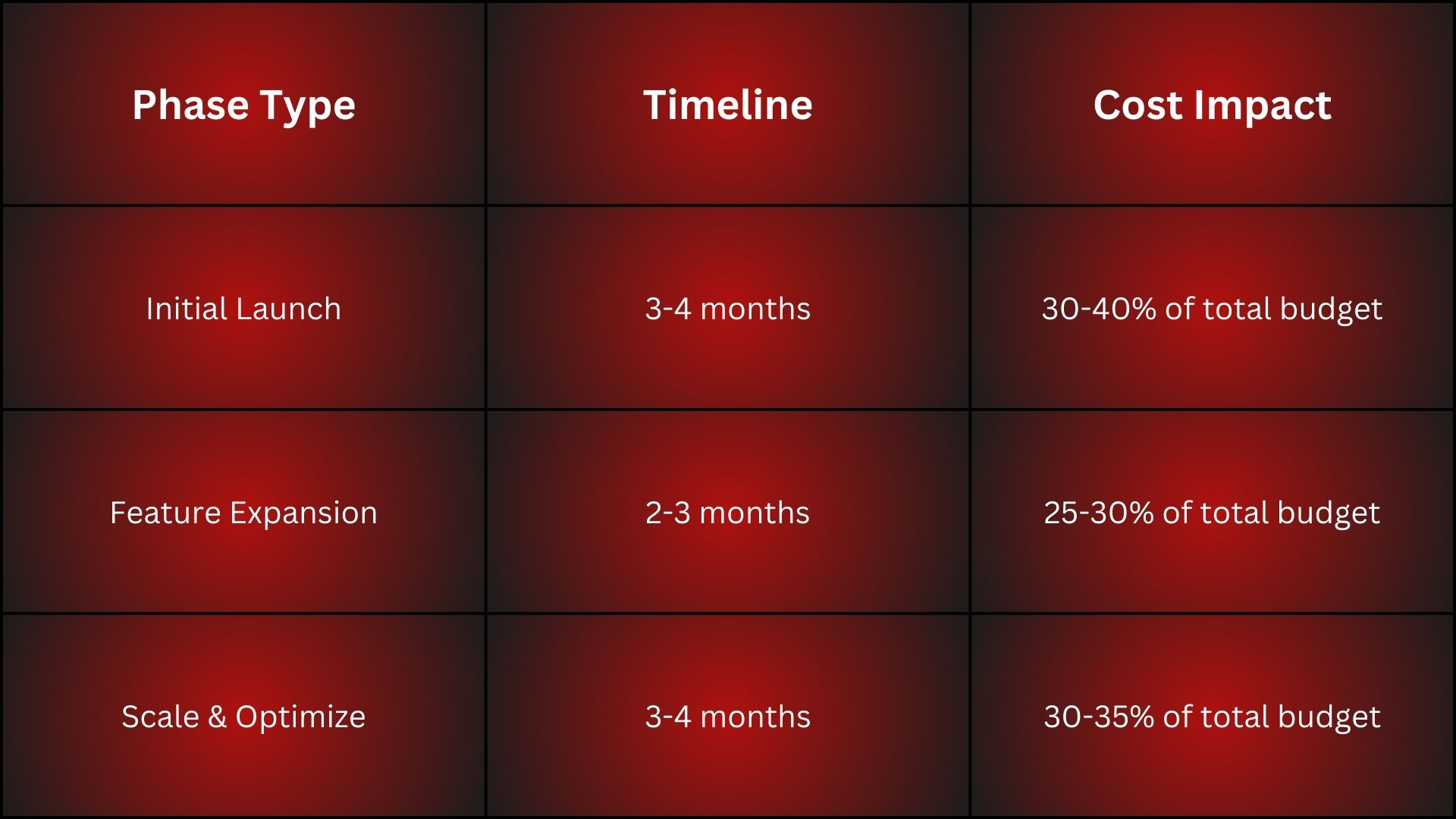
Our data shows that spreading costs over multiple fiscal years makes budget management easier. The process usually takes 3-4 phases, and each phase lasts about three months.
Resource allocation optimization
We maximize efficiency and cut costs in marketplace development through smart resource allocation. Here's how we optimize:
- Team Distribution
- Using cross-functional teams
- Scaling resources as needed
- Outsourcing when it makes sense
- Budget Management
- Picking the right technology stack
- Keeping infrastructure costs in check
- Planning for maintenance costs
Smart resource allocation can cut development costs by 15-25%, especially in maintenance and operations. Our experience shows best results when you:
- Start with core features and grow gradually
- Use cross-platform technologies to speed up development
- Add automated testing to reduce QA costs
- Use cloud services to scale cost-effectively
Good resource planning helps clients achieve better results within their budget. Mid-sized and enterprise organizations that can handle longer development timelines benefit most from this approach.
The combination of MVP development, phased implementation, and smart resource allocation helps clients reduce marketplace app development costs while delivering quality results. We balance current needs with future growth to ensure cost-effective development that lasts.
Conclusion
Building a marketplace app involves complex decisions about costs and investments. Our complete analysis shows that successful marketplace development needs careful planning. The costs range from $40,000-$300,000 for original development to $100,000-$500,000 for yearly maintenance.
Here are three proven strategies for economical marketplace development:
- Build an MVP first to verify market fit and minimize upfront costs
- Partner with development teams in Eastern Europe that offer quality work at competitive rates
- Roll out features in phases to distribute costs and lower risks
New technologies like AI and blockchain have altered the map of development costs and possibilities. Resource allocation and feature prioritization remain significant factors in project success.
Your marketplace should start with core features and grow based on user feedback. This method helps control costs and ensures the platform meets user needs.
Building a marketplace means you are investing in your business's future. The upfront costs might look high, but good planning and implementation will create a profitable platform that achieves your business goals.






